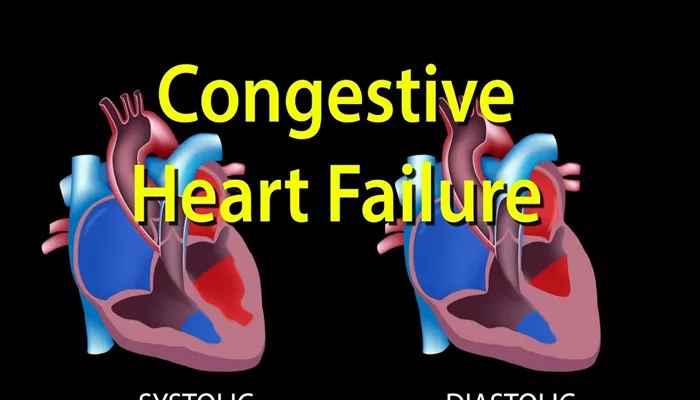Atrial fibrillation (Afib) and congestive heart failure (CHF) are both common heart conditions, yet they differ significantly in their causes, symptoms, and treatments. In this article, we will explore these two conditions in detail, explaining the differences, as well as how they relate to each other, and the impact they have on cardiovascular health.
What is Atrial Fibrillation (Afib)?
Definition and Overview
Atrial fibrillation, or Afib, is a type of arrhythmia, meaning it is a disorder of the heart’s rhythm. In Afib, the heart’s upper chambers (the atria) beat irregularly and often very rapidly, which disrupts the normal flow of blood into the ventricles. This can lead to a variety of symptoms and, if left untreated, may lead to severe complications such as stroke.
Symptoms of Afib
Common symptoms of atrial fibrillation include:
- Heart palpitations or fluttering sensation in the chest
- Shortness of breath
- Dizziness or lightheadedness
- Fatigue or weakness
- Chest pain
Causes of Afib
Atrial fibrillation can be caused by several factors, including heart disease, high blood pressure, hyperthyroidism, excessive alcohol consumption, and certain infections. In some cases, no underlying cause can be identified, but genetic factors may also play a role.
Treatment for Afib
Treatment for atrial fibrillation aims to restore normal heart rhythm, prevent blood clots, and manage any underlying conditions. This typically involves:
- Medications such as anticoagulants (blood thinners) to prevent stroke
- Anti-arrhythmic drugs to help restore normal rhythm
- Electrical cardioversion (a procedure to shock the heart back into normal rhythm)
- Catheter ablation (a procedure to destroy areas of the heart that cause abnormal rhythms)
What is Congestive Heart Failure (CHF)?
Definition and Overview
Congestive heart failure (CHF) is a condition where the heart is unable to pump blood efficiently to meet the body’s needs. This failure can occur on the left side of the heart, the right side, or both. CHF is often the result of chronic conditions that weaken the heart over time, such as coronary artery disease, high blood pressure, or previous heart attacks.
Symptoms of CHF
The symptoms of congestive heart failure vary depending on which part of the heart is affected. Common signs include:
- Shortness of breath, especially during physical activity or while lying down
- Swelling in the legs, ankles, or abdomen
- Fatigue and weakness
- Rapid or irregular heartbeat
- Persistent cough or wheezing with white or pink mucus
Causes of CHF
Congestive heart failure can be caused by a variety of underlying conditions, including:
- Coronary artery disease (blocked arteries)
- Hypertension (high blood pressure)
- Myocardial infarction (heart attack)
- Valvular heart disease
- Cardiomyopathy (a disease of the heart muscle)
Treatment for CHF
The treatment for CHF focuses on improving the heart’s pumping efficiency and managing symptoms. Common treatments include:
- Medications such as ACE inhibitors, beta-blockers, diuretics, and aldosterone antagonists
- Lifestyle changes like weight management, reduced salt intake, and increased physical activity
- In severe cases, devices such as pacemakers or implantable cardioverter-defibrillators (ICDs) may be used
- Heart surgery, including coronary artery bypass grafting (CABG) or heart valve repair/replacement
Afib and Congestive Heart Failure: Key Differences
Pathophysiology
The key difference between atrial fibrillation and congestive heart failure lies in their causes and how they affect the heart. Afib involves irregular electrical activity in the atria, leading to an abnormal heart rhythm. In contrast, CHF refers to the heart’s inability to pump blood effectively due to physical damage or weakness of the heart muscle. Although both conditions affect the heart’s ability to function properly, their mechanisms are distinct.
Symptoms
While there may be some overlap in symptoms—such as shortness of breath and fatigue—there are key differences. Afib typically presents with palpitations, dizziness, and irregular heartbeats. CHF, on the other hand, is more associated with fluid retention, swelling, and difficulty breathing, particularly when lying down or during physical exertion.
Diagnosis
Diagnosing Afib generally involves an electrocardiogram (ECG), which records the electrical activity of the heart and identifies irregularities in rhythm. For CHF, diagnosis may involve imaging tests such as echocardiograms to assess heart function and blood flow, along with blood tests to check for elevated levels of certain markers like B-type natriuretic peptide (BNP).
Risk Factors
Both conditions share some risk factors, including hypertension, coronary artery disease, and age. However, Afib is more common in individuals with a history of high blood pressure or heart disease, while CHF is often the result of prolonged stress on the heart from conditions like heart attacks, diabetes, or excessive alcohol use.
Can Afib Lead to Congestive Heart Failure?
Understanding the Link
In some cases, atrial fibrillation can contribute to the development of congestive heart failure. Over time, the irregular heart rhythm from Afib can lead to inefficient pumping of the heart, resulting in increased stress on the heart muscle. This can ultimately lead to weakening of the heart, progressing to heart failure if not managed properly.
How Treatment for Afib Helps Prevent CHF
Effective management of atrial fibrillation, including medications and procedures like cardioversion or catheter ablation, can help prevent the heart from becoming weakened by inefficient pumping. Early intervention in Afib can thus help reduce the risk of progressing to congestive heart failure.
Conclusion
Atrial fibrillation and congestive heart failure are both serious cardiovascular conditions, but they differ significantly in their causes, symptoms, and treatment approaches. While Afib primarily affects the electrical rhythm of the heart, CHF is a mechanical failure of the heart’s pumping ability. Understanding these differences is crucial for early diagnosis, treatment, and management, particularly since untreated Afib can sometimes lead to heart failure over time. If you experience any symptoms of these conditions, such as irregular heartbeats, shortness of breath, or fatigue, seeking medical attention promptly is essential for preventing further complications.
Related topics:


